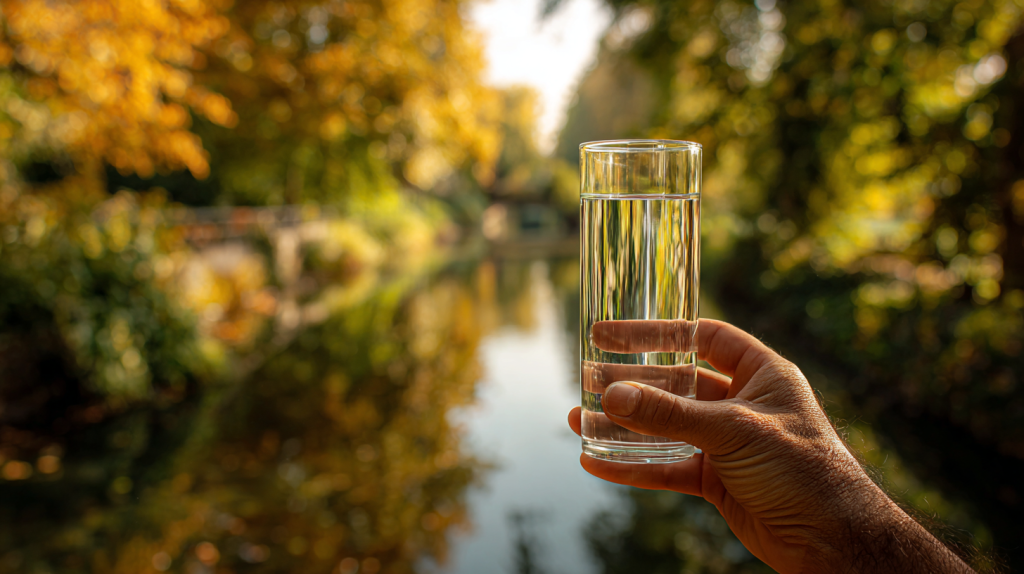
Health Benefits of Filtered Water: Why Clean Drinking Water Matters
If you’ve ever taken a sip of water and thought, “Hmm… that tastes a bit odd,” you’re not alone. Tap water quality can vary dramatically depending on where you live. While most municipal water supplies are treated to meet safety standards, that does not mean they are completely free from impurities or that they always taste great. This is where filtered water comes into the picture.
Drinking filtered water is not just about improving taste. It can have tangible benefits for your health, your household appliances, and even your wallet. Let’s explore why more people are making the switch to filtered water and what it could mean for your wellbeing.
Cleaner Water Means Fewer Contaminants
One of the most obvious benefits of using a water filter is the removal or reduction of contaminants. Tap water may contain trace amounts of chlorine, lead, mercury, pesticides, and microplastics. While these are usually kept within “safe” limits by water authorities, regular exposure over time can still be a concern.
Filters are designed to trap or neutralise many of these substances before they reach your glass. Activated carbon filters, for example, can absorb chlorine and improve taste, while reverse osmosis systems can remove a much broader range of impurities, including heavy metals. The result is water that is not only safer but also far more pleasant to drink.
Improved Taste and Odour
Let’s be honest: taste matters. If your water smells like a swimming pool or has a metallic tang, you are less likely to drink it regularly. Many people end up turning to bottled water in these cases, which can be expensive and environmentally unfriendly.
Filtering water can significantly improve both taste and odour by removing the compounds responsible for unpleasant flavours. This is particularly important if you want to encourage yourself or your family to stay hydrated throughout the day. When your water tastes crisp and fresh, you naturally reach for it more often.
Encouraging Better Hydration Habits
Your body is made up of around 60 percent water, and proper hydration supports everything from brain function to joint health. Yet many people still do not drink enough each day.
Having access to filtered water at home makes it easier to meet your hydration goals. You are more likely to fill up your glass when you know it is clean, safe, and tastes good. For children especially, filtered water can make a big difference in building lifelong healthy hydration habits. And since filtered water can be chilled in the fridge or dispensed on demand, it is more convenient than constantly buying bottled water.
Potential Reduction in Certain Health Risks
While most healthy adults can handle trace levels of impurities without immediate harm, some groups are more vulnerable, including children, pregnant women, and people with weakened immune systems. For these individuals, reducing exposure to certain contaminants can be an important precaution.
For instance, lead in drinking water, even at low levels, can be harmful to developing brains. Nitrates in water have been linked to health issues in infants. By filtering water, you can lower these risks, giving peace of mind to households with higher sensitivity to water quality issues.
Protecting Your Skin and Hair
Filtered water is not just beneficial when you drink it. If your home’s tap water contains high levels of chlorine or other chemicals, it can affect your skin and hair health. Chlorine can strip away natural oils, leaving skin dry and irritated, and hair dull or brittle.
While whole-house filtration systems can address this directly at the shower or bath, even using filtered water for face washing can be a small but noticeable improvement for sensitive skin. People prone to eczema or irritation may find that reducing chemical exposure helps keep flare-ups at bay.
Better for the Environment
One of the indirect but important health benefits of filtered water is its positive effect on the environment. By switching to filtered tap water instead of bottled water, you reduce plastic waste and the environmental burden of producing, transporting, and disposing of bottles.
A healthier planet ultimately supports healthier people. Fewer plastic particles in the environment mean less risk of microplastics making their way into our food and water supplies.
Cost Savings Over Time
While some filtration systems require an upfront investment, they can save you money in the long run. Buying bottled water regularly is far more expensive than filtering tap water at home. Plus, you avoid the hassle of carrying heavy bottles from the store and storing them in your kitchen.
When you factor in the environmental and health benefits, the cost argument becomes even more compelling.
Choosing the Right Water Filter
Not all water filters are created equal. The best choice for you will depend on the quality of your local water supply and your household’s needs. Common options include:
- Pitcher filters: Affordable and easy to use, ideal for improving taste and removing basic contaminants.
- Faucet-mounted filters: Attach directly to your tap for on-demand filtration.
- Countertop systems: Provide larger capacity without modifying your plumbing.
- Under-sink filters: More permanent solutions that often use multiple filtration stages.
- Whole-house systems: Treat all the water entering your home, improving both drinking and bathing water quality.
Before buying, check your local water quality report to identify which contaminants are most relevant in your area. That way you can choose a filter designed to target those specific issues.
Making Filtered Water Part of Your Routine
Once you have a filtration system in place, maintenance is key. Filters need to be replaced according to the manufacturer’s guidelines to stay effective. A clogged or old filter can actually reduce water quality rather than improve it.
You can also integrate filtered water into your daily habits in simple ways. Use it to make tea and coffee for a smoother taste. Cook vegetables and pasta in filtered water to avoid absorbing unwanted chemicals during boiling. Even your pets can benefit from cleaner, fresher water.
Filtered water offers a combination of health, taste, and environmental benefits that can make a noticeable difference in your day-to-day life. Whether you are looking to protect your family from potential contaminants, encourage better hydration, or simply enjoy a fresher-tasting drink, a good water filter is a smart investment.
Your body will thank you for it. And so will the planet.
